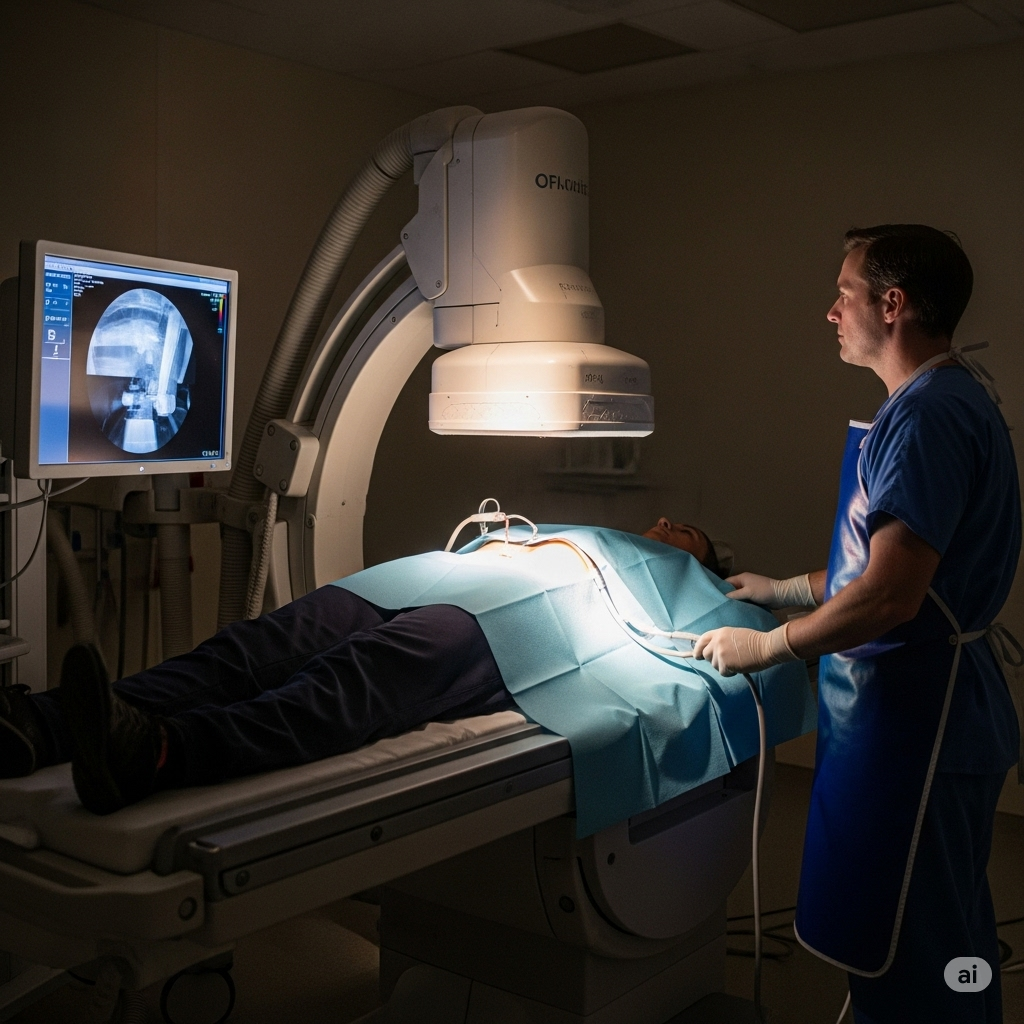Fluoroscopy: Demystifying Your Imaging Appointment
Fluoroscopy: Demystifying Your Imaging Appointment
Wed Aug 13 2025Fluoroscopy is a diagnostic imaging technique that provides real-time, moving X-ray images of the body's internal structures. Often described as an "X-ray movie," fluoroscopy allows physicians to observe organs and systems in motion, offering insights that static X-ray images cannot provide. Understanding what to expect during your fluoroscopy appointment can help alleviate any anxieties.
Before Your Fluoroscopy
Preparation for a fluoroscopy procedure varies, depending on the specific area being examined. This might include fasting for several hours before the procedure, especially for gastrointestinal studies, or adjusting certain medications. It's crucial to inform your doctor about any allergies, especially to contrast dyes, iodine, or latex, and mention whether you are pregnant or might be. You may also be asked to remove jewelry or clothing containing metal, so wearing comfortable, metal-free attire is often recommended.
During Your Fluoroscopy
Upon arrival at Memorial Hermann Surgical Hospital First Colony for your diagnostic imaging procedure in Sugar Land, an imaging technologist will guide you to a private exam room. They will review the procedure with you and answer any questions you may have. You will typically lie on an X-ray table, though some procedures may require you to stand. A continuous X-ray beam will be directed through the area of interest, and the live images will be displayed on a monitor.
For many fluoroscopy procedures, a contrast material is used to enhance the visibility of organs and blood vessels. This might be administered by swallowing (e.g., barium for gastrointestinal studies), via an enema, or through an intravenous (IV) line. During the process, you may be asked to change positions, move a specific body part, or hold your breath briefly. This real-time X-ray in Sugar Land offers unparalleled detail.

After Your Fluoroscopy
The immediate aftercare depends on the type of fluoroscopy performed. If no sedation was used, you might be able to leave shortly after the exam. If contrast material was administered, you may receive instructions on how to help your body flush it out, often by increasing fluid intake. For procedures involving catheter insertion or sedation, a brief recovery period may be required. Your care team will provide specific post-procedure instructions, including any activity restrictions and signs to watch for, such as pain or swelling at the IV site. A radiologist will interpret the images, and a full report will be sent to your referring physician, usually within a few business days.
Common Uses of Fluoroscopy
Fluoroscopy is a versatile diagnostic imaging tool used across various medical specialties. It's invaluable for:
- Gastrointestinal studies: Observing the movement of the esophagus, stomach, and intestines (e.g., barium swallows, barium enemas).
- Cardiac catheterization: Visualizing blood flow through arteries to diagnose and treat heart conditions.
- Orthopedic procedures: Guiding joint replacements, fracture repair, and spine injections.
- Catheter and stent placement: Ensuring precise positioning of medical devices within the body.
- Hysterosalpingography: Examining the uterus and fallopian tubes.
At Memorial Hermann Surgical Hospital First Colony, this X-ray in Sugar Land plays a vital role in providing comprehensive care, offering detailed, dynamic insights to guide accurate diagnoses and effective treatments.
To learn more about their diagnostic imaging services in Sugar Land or to schedule an appointment, please visit their website and find a physician who's perfect for you.